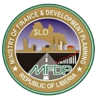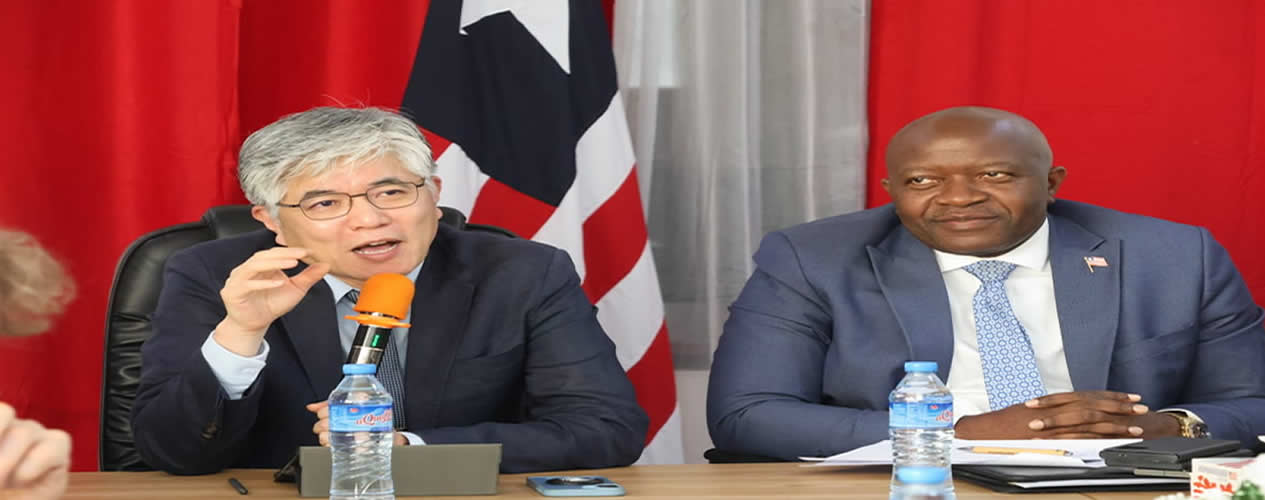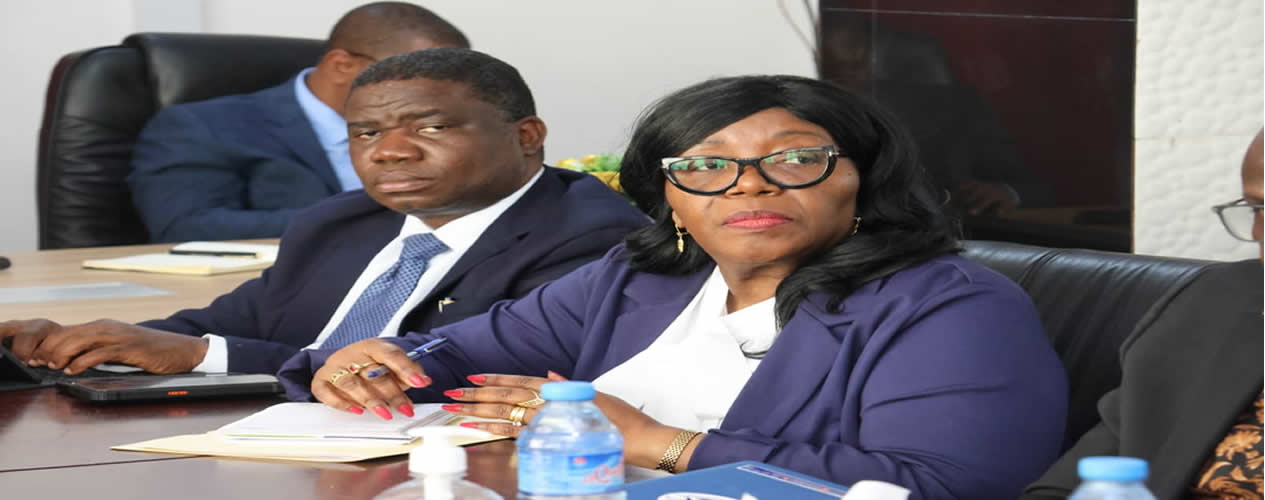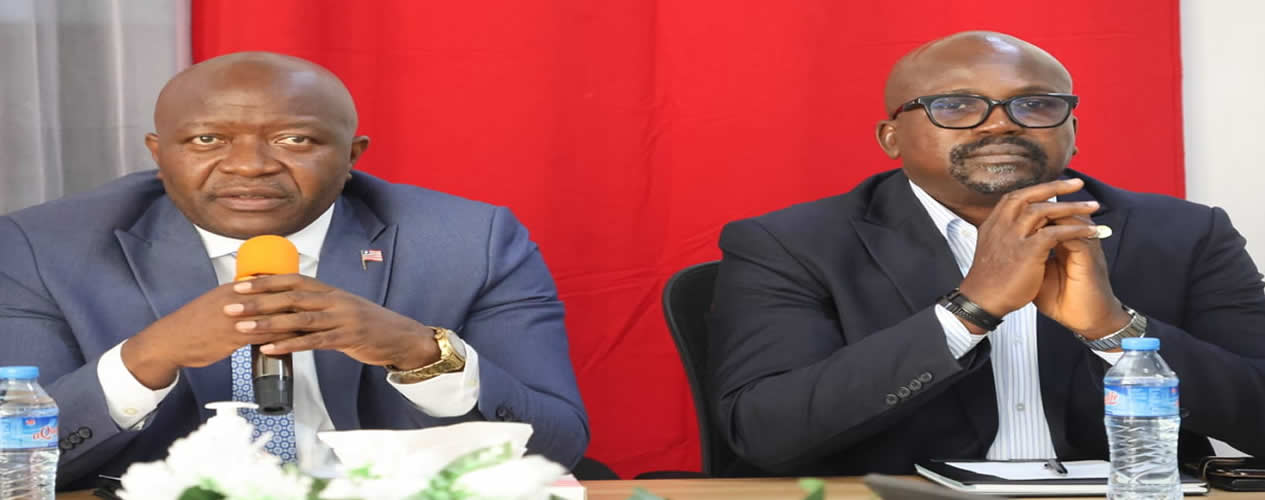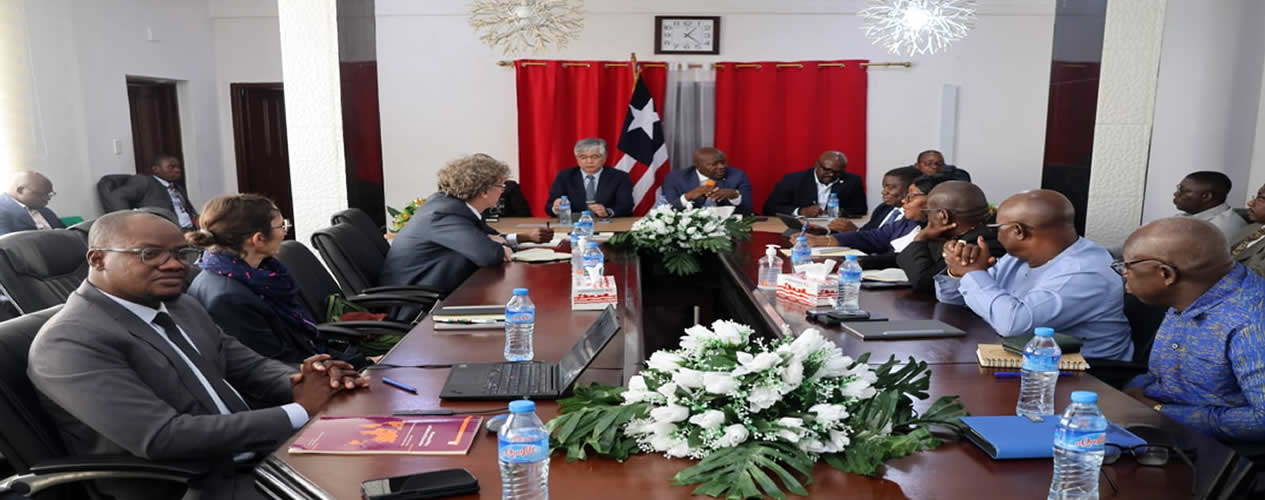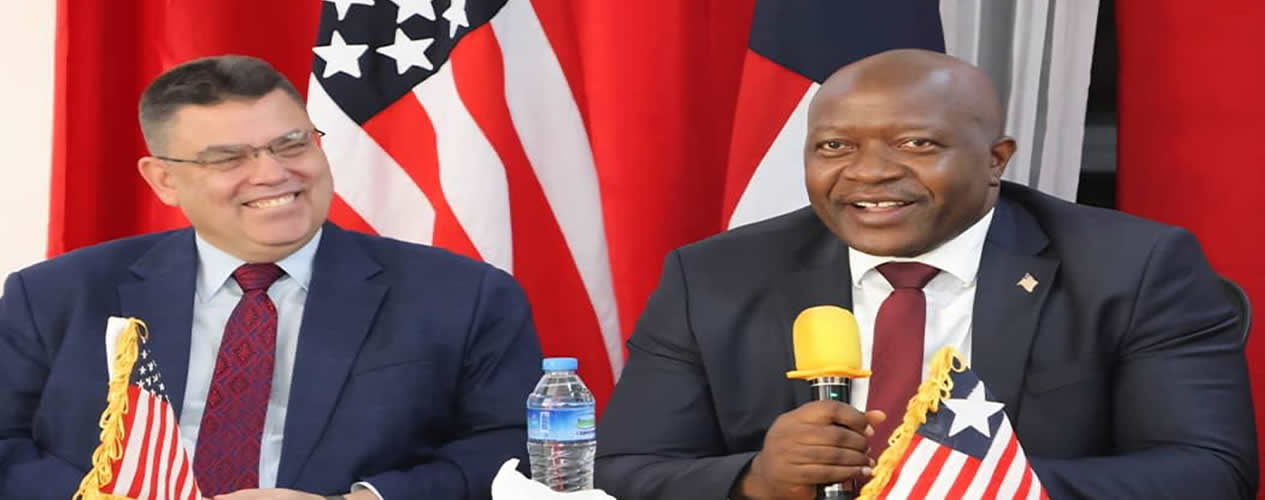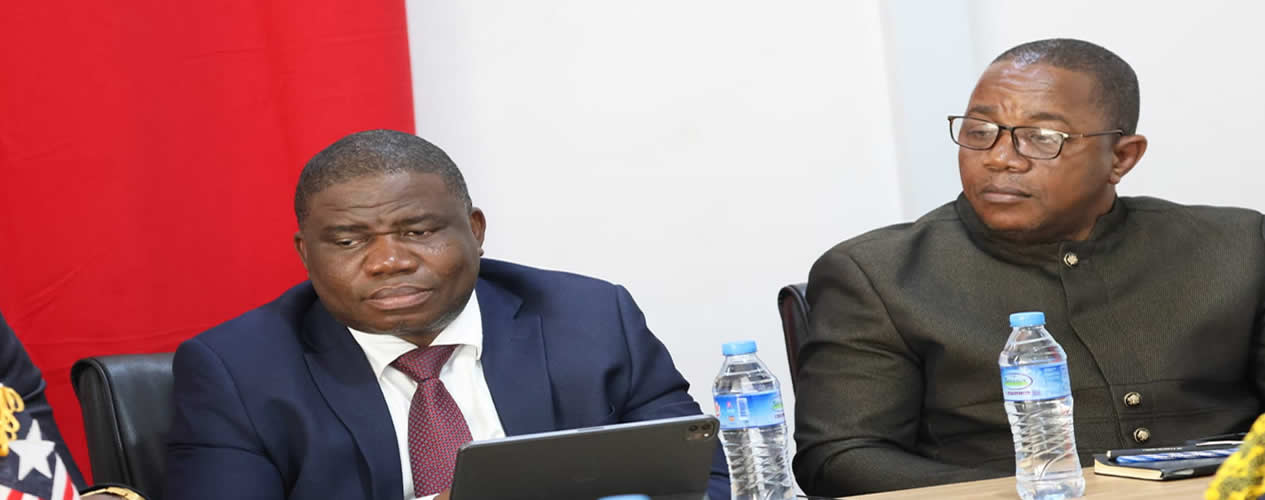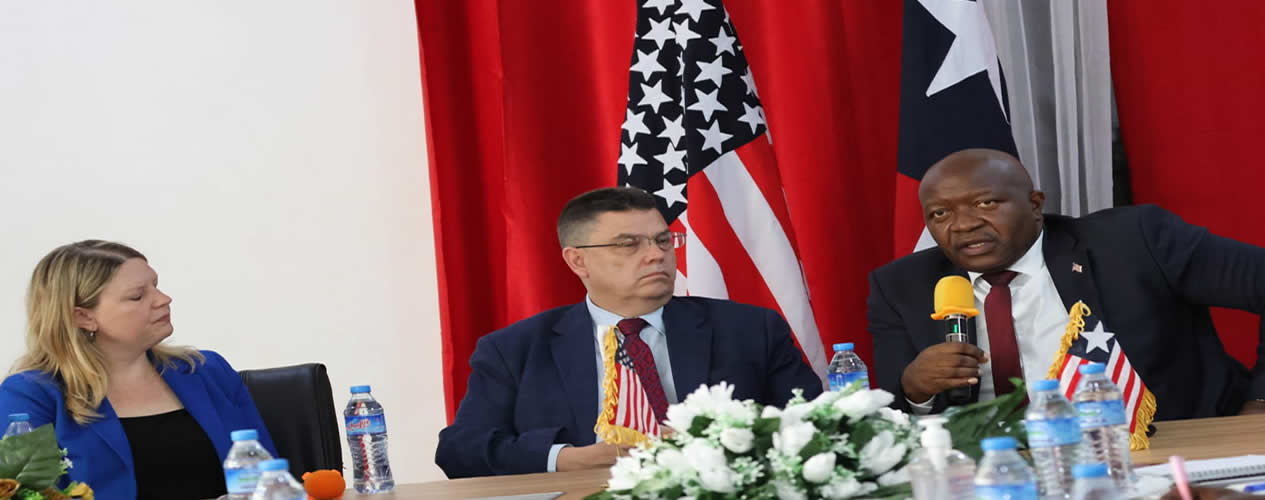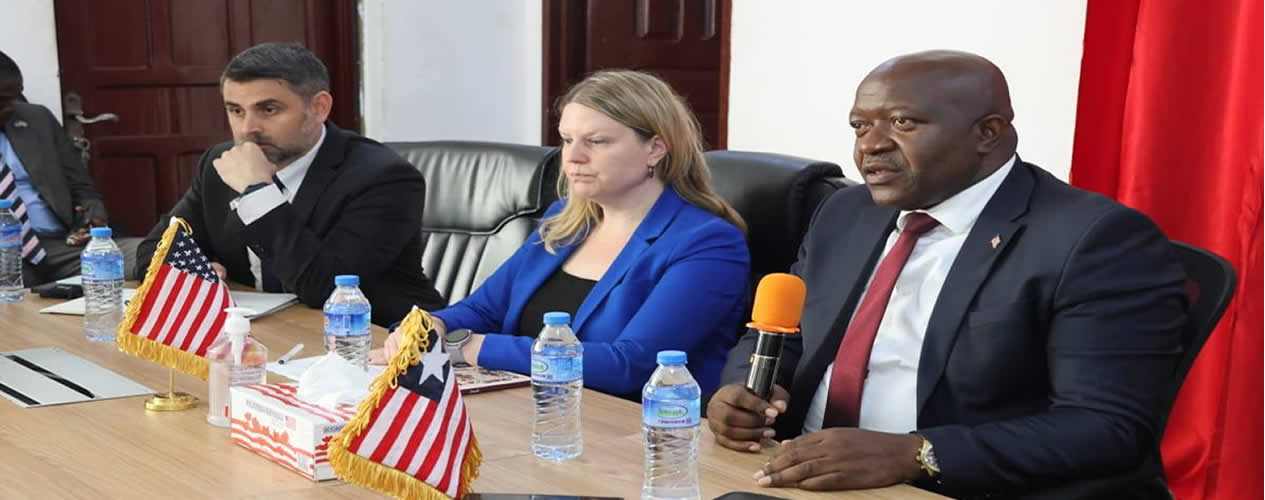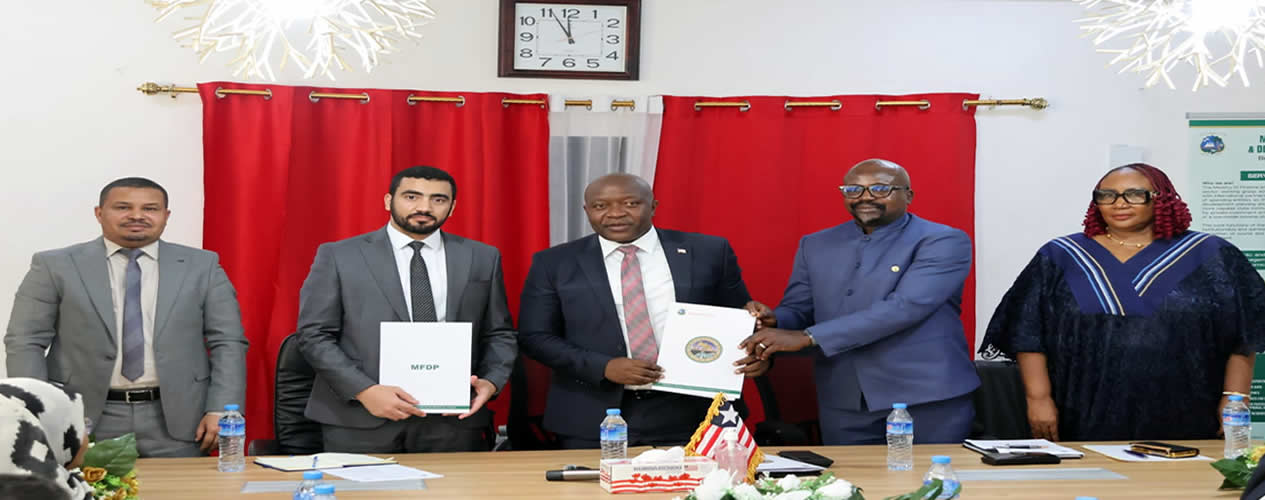Admin
IMF Chief Wants “Budget Support” For Liberia
FY2016/2017 Annual Development Assistance Report
Fourth Quarter Public Debt Report FY2017/18
Fiscal Outturn Report for the Second Quarter FY2016/2017
Department of Fiscal Affairs
This Department is responsible for all fiscal matters relating to Expenditure and Revenue as well as Tax Policy. With the establishment of a semi-autonomous Revenue Authority, the Department of Fiscal Affairs deals with revenue and tax policy issues, including framing of tax laws and regulations, role of taxation and tax exemptions in the broader economic and development policy framework, and issues relating to non-tax revenue.
In addition to revenue and tax issues, Fiscal Affairs further deals with public expenditure issues ranging from framing of financial rules and regulations to matters pertaining to government accounting. The Department has oversight of the Controller and Accountant General Office, the Integrated Financial Management Information System (IFMIS), policies on government subsidies, pay, allowances, pension policies and monitoring of public expenditure.
The Department of Fiscal Affairs comprises the divisions of Expenditure and Revenue and Tax Policy.
Expenditure Division
The Expenditure Division, headed by an Assistant Minister, manages the financial resources of Liberia. The Division is responsible to develop and administer the financial rules and regulations of the Republic; oversee and execute all matters relating to government accounting, including pay, pensions and other allowances, as well as develop fiscal policy. In addition, the Expenditure Division also implements expenditure proposals of Ministries and Agencies of Government as appropriated in the Budget, and performs other functions as may be assigned by the Minister as well as imposed by law.
Revenue and Tax Policy Division
The Revenue and Tax Policy Division, headed by an Assistant Minister, is primarily a policy division that addresses tax and non-tax revenue policies. This Division and the Ministry will interface with the Liberia Revenue Authority (LRA), a semi-autonomous agency, under the general supervision and direction of the Minister, responsible for implementing the tax laws and collecting taxes. The Tax Policy Division has responsibility for forecasting revenue and providing the forecasts to the Budget Division in the Department of Budget and Development Planning, as well as the Macroeconomic Policy Division in the Department of Economic Management.
Main Functions of the Revenue & Tax Policy Division:
• Development and implementation of tax policy proposals, drafting legislation, regulations, procedures and published guidance, participation in negotiation of mining, petroleum and other concession agreements;
• Provide receipts and revenue forecast, including estimates for cash management and type of tax for the Budget, revenue estimates for actual and proposed legislation;
• Perform economic modeling, including development and maintenance of data bases for tax analysis, development of models for tax analysis, including micro simulation models and income distribution effects of current and proposed laws;
• Development of international tax policy, such as negotiation of tax treaties and tax harmonization within ECOWAS;
• Perform other functions, including responding to questions from Parliament; coordinating with macro-economic and budget receipts offices of the MFDP;
• Work closely with the LRA on a number of functions, on which LRA will lead in most cases, including:
o Development of tax policy proposals to improve and simplify tax compliance and tax administration and analysis of the compliance and tax administration implications of legislative proposals;
o Development and publication of an annual tax expenditure budget, measurement of compliance gaps and publication of tax statistics;
o Meeting the Government’s obligations under the Liberia Extractive Industry Transparency Initiative (LEITI).
Department of Economic Management
The Department of Economic Management is responsible for formulating and monitoring the Country's economic policies and programs. It is the principal adviser to Government of Liberia on economic policy, and drives the country’s flagship development agenda the Agenda for Transformation (AFT). The department also deals with all matters relating to debt management and external resource mobilization which include external debt and foreign aid, and relations with bilateral and multilateral financial institutions.
The Economic Management Department is the nodal department dealing with the Central Bank of Liberia on macroeconomic policies. The department also deals with matters concerning financial sector policies including banking, insurance and capital markets. The Department has two Divisions: Economic Policy Macroeconomic and Financial Sector Division, and External Resources and Debt Management.
Department of Administration
The Department of Administration is responsible to formulate policies and guidelines on the management of human and physical resources, as well as supervise Ministry-wide services relating to internal cash management, personnel administration, property and supplies, procurement, custody and maintenance of central files and corresponding reporting systems.
The Department also designs and develops training policies and guidelines as well as administers and evaluates training programs. The Department performs other functions as may be assigned by the Minister as well as imposed by law.
Core Values
Transparency: Simply making information available is not sufficient to achieve transparency. At the MFDP, we act visibly, predictably and understandably to promote participation and accountability.
Accountability: We ensure that ALL individuals within the MFDP are answerable for all of their actions, and that there is redress when duties and commitment are not met.
Integrity: A strict adherence to moral and ethical principles is encouraged, with ABSOLUTELY ZERO TOLERANCE FOR CORRUPTION!!!
Service orientation: Ensuring timely, courteous and customer-focused consistent delivery of services, the MFDP remains in icon of service delivery.
Effective Communication: The Ministry ensures an efficient and effective communication process where messages are delivered promptly in a well-articulated manner to the intended audiences.
Innovation: Harnessing new ideas, tools and technologies, the MFDP brings innovation and value to service delivery.
Commitment: The MFDP remains focused in ensuring that all of our employees work assiduously to promote the organization’s vision and mission.
Teamwork: The process of working collaboratively with a group of people in order to achieve a goal.
Results Focused: At the MFDP, organizational goals and outcomes are best quantifiable in terms of the SMART (S=Simple, M=Measurable, A=Achievable, R=Relevant and T=Timely) approach.
Efficiency: A leaner and more efficient MFDP translates into productivity, and elimination of waste and abuse.
Administrative Regulation Surcharge
FY2017/18 Annual PFM
Location
P. O. Box 10 - 9016
Broad & Mechlin Street
1000 Monrovia
info@mfdp.gov.lr

